Rich people in rich countries cannot avoid caring about domestic poverty.

In my home country, the United States, people probably don’t care enough about domestic poverty (if we did, millions of people wouldn’t still be living under the poverty line). But most Americans do care (or feel they should care) about domestic poverty.
In the United States, I see people volunteering and giving to charity. I see people arguing and petitioning for that which will make the United States more just. Many people at my university volunteered at the homeless shelter and were involved in homeless activism. And even for those who weren’t, homelessness bothered them deeply. They saw homeless people every day.
You location doesn’t make global poverty go away. If you care about domestic poverty, you should care deeply about global poverty – even if it doesn’t stare you in the face.
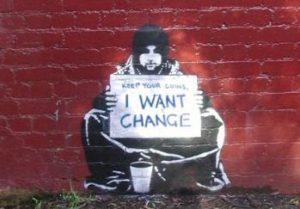
The disconnect between the majority world and yours (and mine) is a problem. I’m still terrible at caring about things that aren’t staring me in the face, it’s just now I live in Zambia.
In my last post, I wrote about closing my car window on an undernourished 8-year old kid on my way from my fancy office to my fancy pool. The way I see it, every day rich people in the United States are doing the same thing: driving from their air-conditioned houses to their air-conditioned offices, ignoring the undernourished eight-year-old kids forced to sell pineapple on the street instead of going to school.
I wish rich Americans would begin to think about global poverty a bit more like they do about United States poverty: that they would, in larger numbers, donate money and time and activism and careers towards fighting it. Outside of our culture and our country this looks different; we don’t have the same background knowledge or authority to change systems. But acknowledging the scale of global poverty is the first step.
There are more than twice as many people globally living on under $2 a day than there are people in the United States.
That’s 768 million people.

Most ordinary rich people don’t realize the scale of global inequality or easily preventable diseases.
Did you know that adjusted for purchasing power parity (in short, adjusting for cost of living between countries so you can compare across countries) the average person in the United States is nearly 15 times richer than the average person in Zambia?
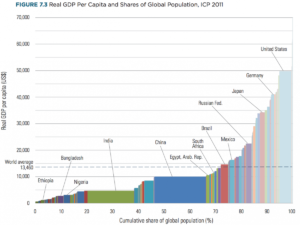
So if you’re convinced you should care about global poverty and inequality, what are some next steps?
1. Learn about the issues before you donate/get involved.
Because this is my line of work, I believe it’s important for citizens of rich countries to at least have a rudimentary awareness of what’s going on in international development, so well-intentioned people don’t put money or time into global development-related things that are ineffective or even actively harmful.
A great and easy way to start is to follow international development related blogs on Twitter (these are three I follow, there are lots more). I also subscribe to This Week in Africa, a weekly email bulletin that has an excellent link roundup of development-related and ordinary life things on the continent. If you’re interested you can check out the blog here and subscribe to the bulletin here.
2021: I’ve published a followup post here about global issues such as agricultural subsidies/food dumping that affect global poverty in ways you might not expect.
2. Donate to charities that are making a difference.
As I started my last post with, if you’re convinced that you should care, consider donating more to effective international charities. (The link is my suggestion, but please do critical thinking and research before donating to anything). You can give up a little and still be able to live the same life you had before, while adding huge marginal impact someone else’s life.
I am convinced that aid and charity are useful for some big things: health, hunger, sanitation, basic education. Charitable donations can be a way for people to make a difference without making a drastic career change.
Even if you think aid is only useful for health, there’s a lot that can be done with your money. Look at the chart below. Think about how many of these causes of death have been all but eradicated in rich countries. Think about the deaths even a few dollars could prevent.
3. Think critically about these issues. Charity and Western-aided development are not going to fix all the world’s problems.
Even if you believe all international development and charity work is ineffective, I hope you still think about these issues. That’s part of what this blog is about. I would love to talk with people (in the development space or not) who are thinking critically and seriously about global poverty, outside of the box of charity and aid.
There are critiques of “international development” coming from all sides. Two of the most interesting things I’ve encountered about development recently are:
(1) This book by a Korean economist about how the neoliberal theory of development (implemented by the World Bank, IMF, Western countries) is both hypocritical and ineffective,
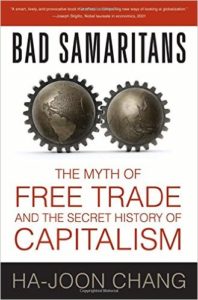
(2) This TED talk by Nigeria’s former minister of finance about how “Africans are tired of being the subject of everyone’s charity and care” and how the best thing for the continent is more investment and business.
Maybe one of reads this blog and decides to become an economist. Or maybe one of you reads this blog and thinks, “wow, I really disagree with the proposed solutions of you/people you’re quoting”, and comments on my neocolonial attitude (it’s honestly hard to avoid as an American in this space), argues for a better solution, and throws themselves into making that happen.
Either one is great. One goal for this blog is to get people thinking about global poverty, even if it’s because they completely disagree with the way I’m approaching it. At the very least, I hope I can let my friends and family know more in depth about what I do, and why I care.
But ultimately, I can’t tell you exactly why *you* should care.

Let’s get a little philosophical. I’ve given you emotional and statistical appeals about why you should care about global poverty. I’ve provided suggestions for next steps if you do care. But I haven’t answered the question in my title. That’s because for you, I can’t. I don’t know your moral or ethical system.
I could make arguments from a variety of religious and philosophical traditions about why you should care about people in poverty far from your backyard (and I probably will in this blog), but even within the same traditions, there are a variety of ways one can approach poverty and duties to people in poverty. Despite my sympathies towards effective altruism, I’m not a strict utilitarian. I think it’s amazing that so many rich people work tirelessly caring for family members, or volunteering at homeless shelters and food banks or advocating for fairer policies for people in poverty in the US. But I also know it is important that rich people think about global poverty more than they currently do.
I know people who have come up with elaborate moral justifications for not caring about global poverty. But far more common are rich people who live normal lives thinking of themselves as good people, never even thinking about global poverty. That’s who this post is for.

I believe that every day, you are driving past that hungry kid holding a pineapple without even looking. Maybe you don’t have an obligation to him, I don’t know. I don’t have a completely airtight, criticism-proof, cohesive ethical system to convince you with. But I don’t think the burden of proof is on me.
If you’re a rich person ignoring global poverty, you’d better have a good reason why.

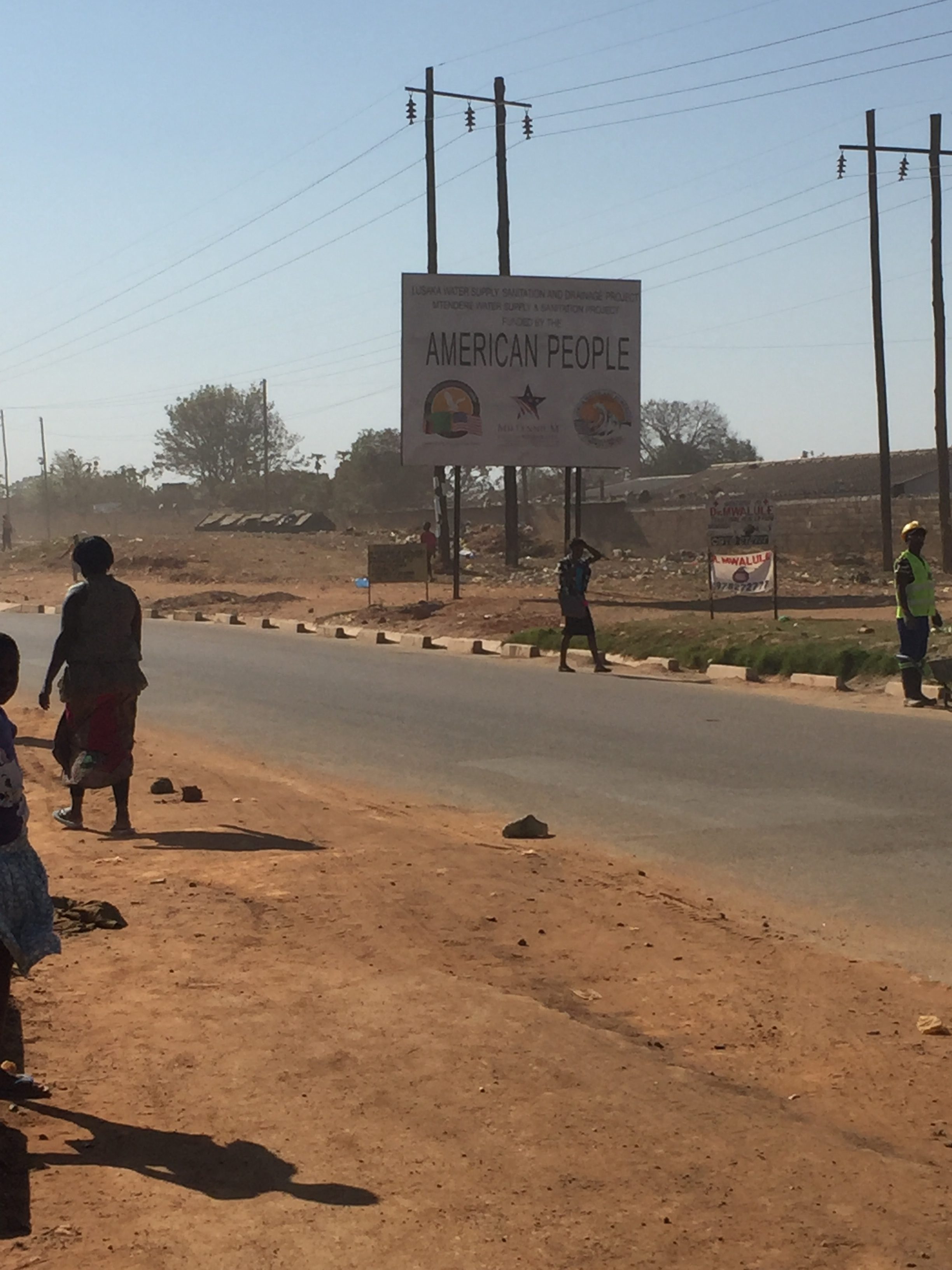
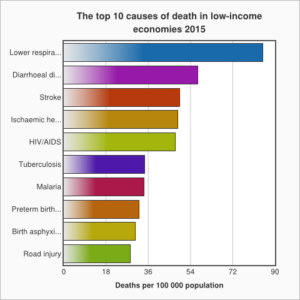
This Week in Africa is great!